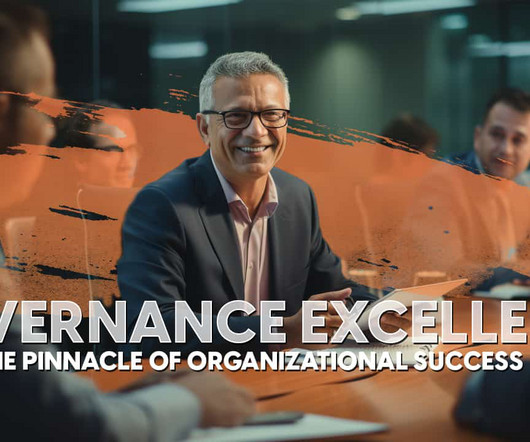Board Governance Excellence: The Pinnacle of Organizational Success
N2Growth Blog
OCTOBER 26, 2023
A proficient board is a guiding light, offering leadership and oversight to fuel the realization of organizational objectives. Moreover, the board’s critical role extends to risk management, ensuring robust processes are in place to identify, assess, and mitigate risks, bolstering the organization’s success trajectory.

















Let's personalize your content